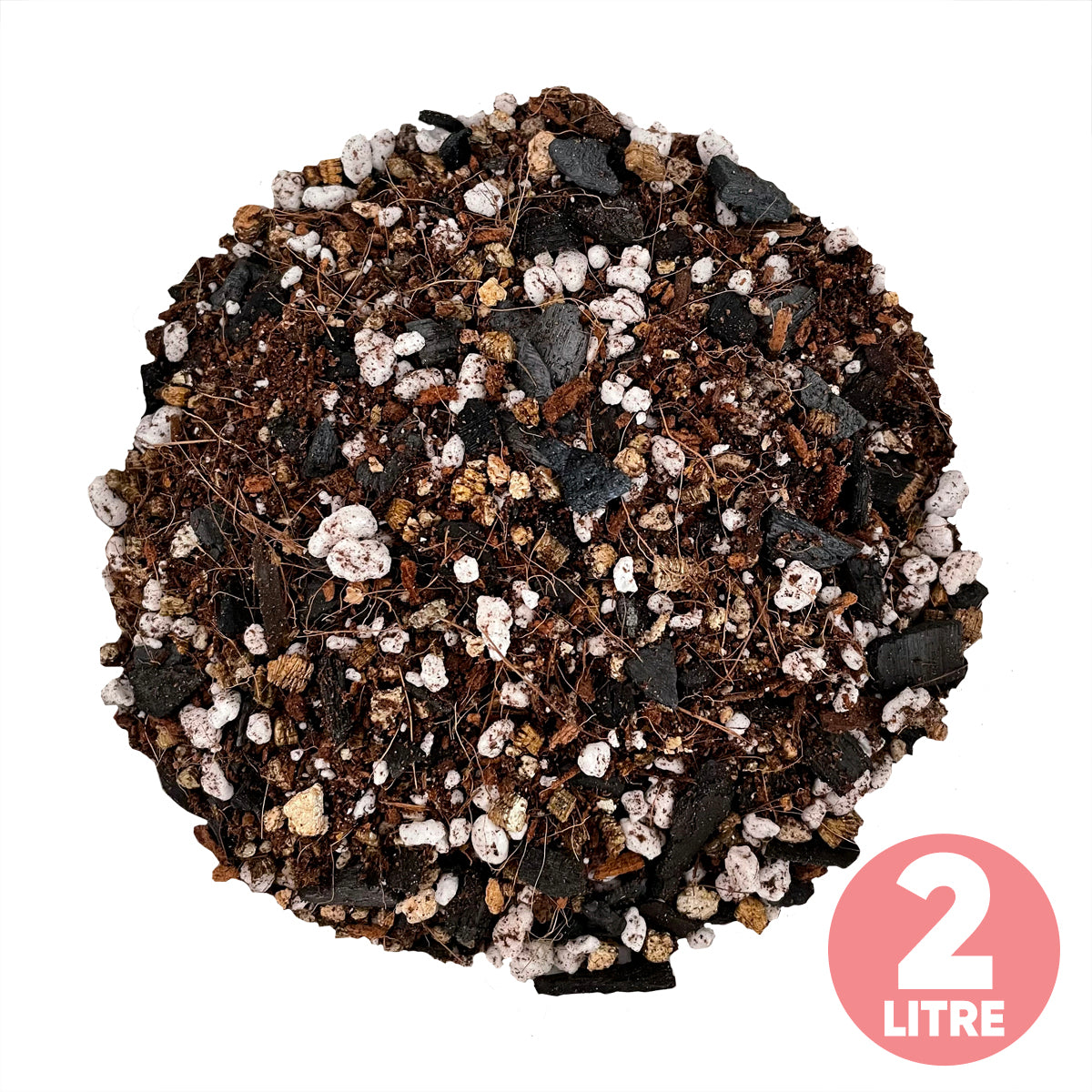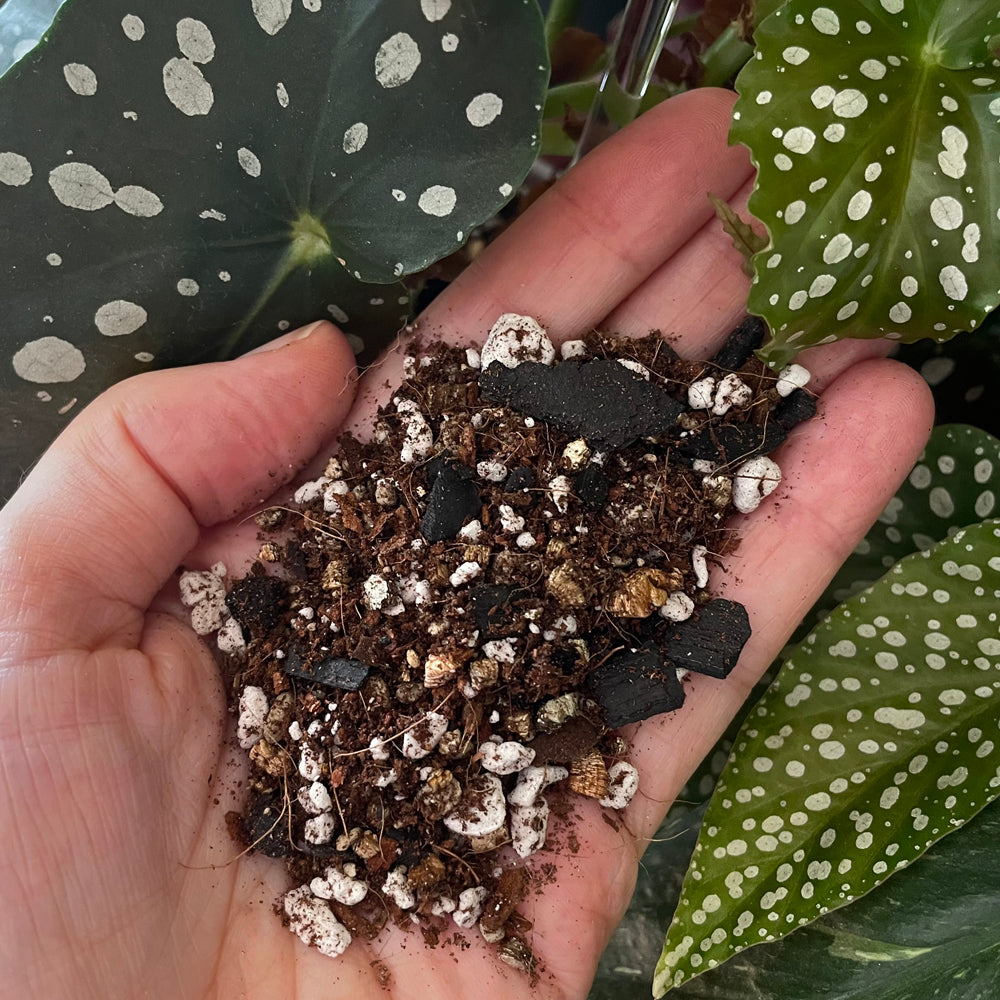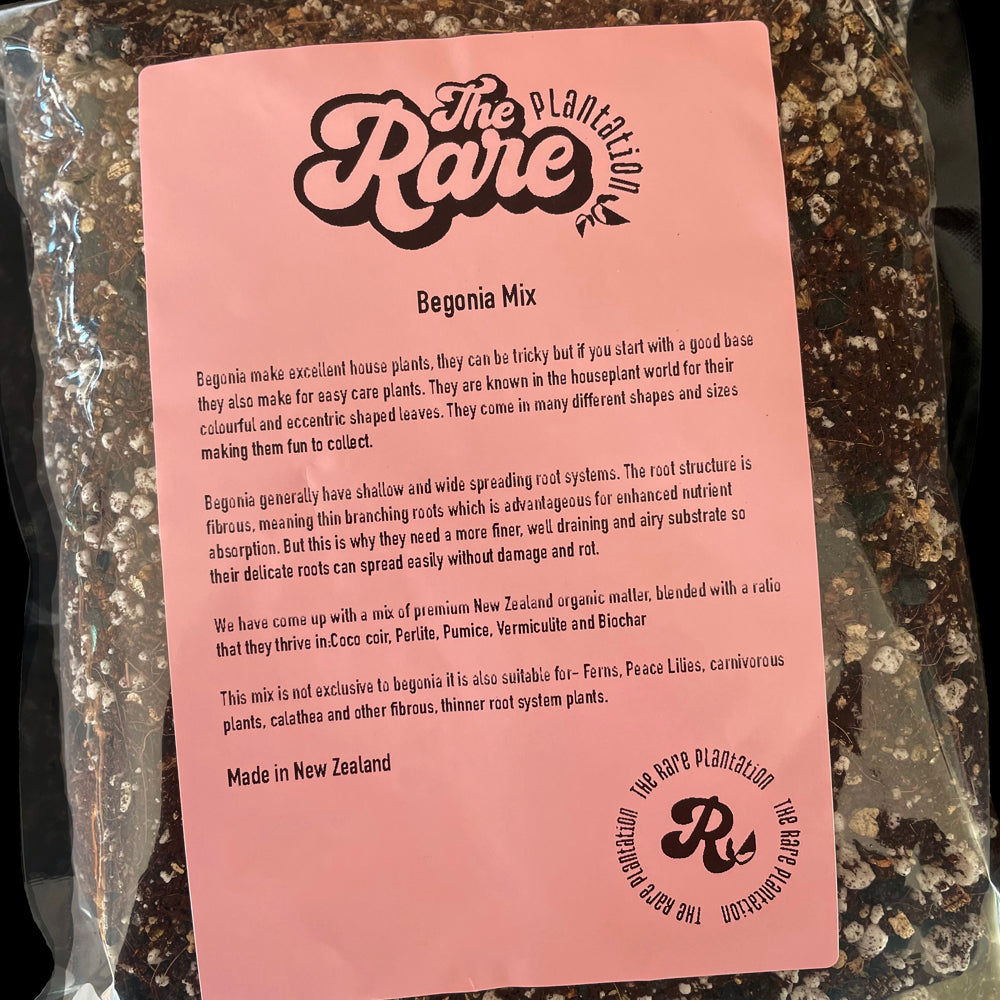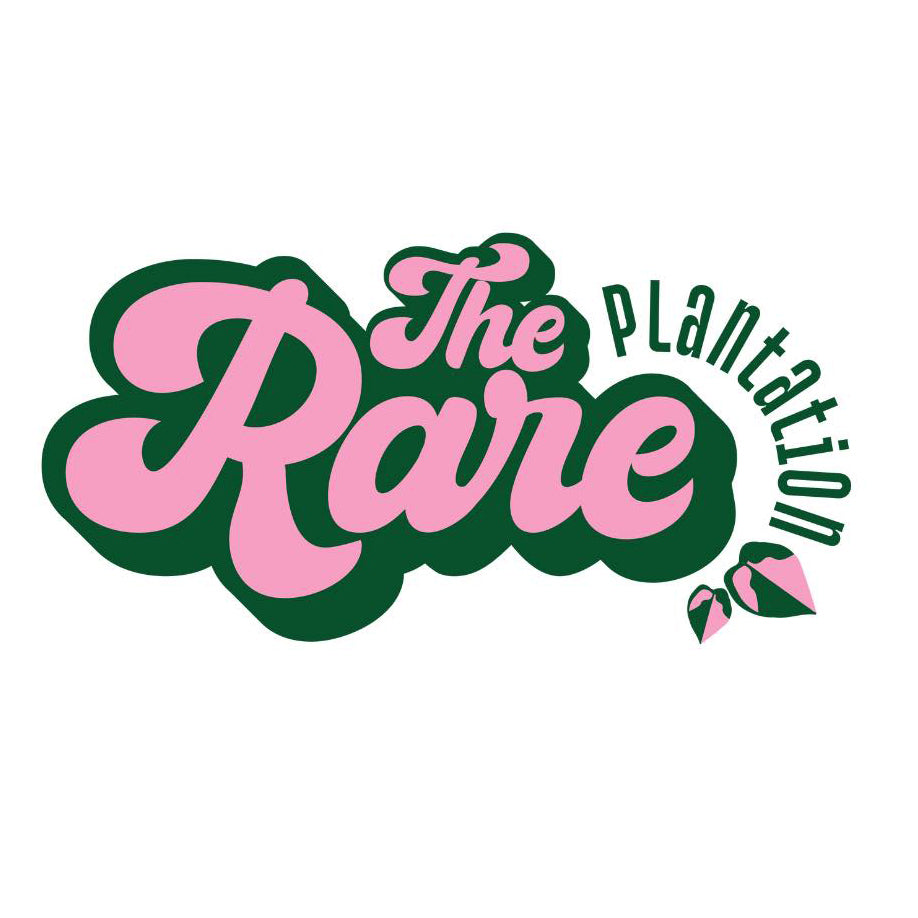BEGONIA Blend from The Rare Plantation - 2 litre
- Regular Price
- $12.00
- Sale Price
- $12.00
- Regular Price
- Unit Price
- Translation missing: en.general.accessibility.unit_price_separator
Available in 2 litres (this size), and 5 litres, available here >
I admit I may be a little addicted to begonias. I started with the easier-care cane begonia varieties (love those spots), but it wasn't long before I was adventuring into the fussier rex and shrubby begonias.
Begonias are one of those plant families where you find out REALLY fast how bad the wrong substrate can be. Things can quickly turn from life to death.
Begonia care becomes so much easier with the right substrate. And this is the bomb of begonia blends. Made right here in NZ by begonia specialist Yuki from The Rare Plantation.
You can do what I did at first, using trial (and a lot of error), experimenting with what you grow your begonias in, or you can take the guesswork out and have an expert do the hard work for you with a custom blend made just for begonias...
PS: Need LOTS of potting mix? Orders over 15 litres total sometimes get too big or heavy for standard shipping rates. If your order goes over into overweight / oversize rates I will be in touch to let you know. I won't incur any costs without your okay - Anna
Why do begonias need their own potting mix?
Begonias are different from the majority of our houseplants. They generally have both shallow and wide-spreading root systems with much finer, fibrous roots. A mistake those new to begonias tend to make is accidentally starving them of essential nutrients. Begonias in general are heavy feeders. Their thin, branching roots increase their ability to absorb nutrients - if their substrate allows for it!
A finer, more fibrous substrate like The Rare Plantation Begonia Blend allows those delicate roots to both spread easily and also not miss out on the vital water and nutrients they need to thrive.
What's in this mix?
COCO COIR
Fine, fibrous, light and fluffy with superb water retention makes coco coir an ideal inclusion for begonias who dislike fully drying out. Coco coir provides consistent moisture that wicks readily to help moisture spread evenly throughout the pot so no roots miss out.
Wet leaves for begonias can put out the welcome mat for powdery mildew. Coco coir is also excellent for begonias because it suits both top or bottom-watering to avoid leaves getting wet, quickly transporting water bottom to top so those shallow roots get their fair share. Unlike coco peat, coco coir is more fibrous, maintaining a better balance of air and water vs coco peat. Coco Coir is also 100% organic and comes from sustainable, renewable resources.
PERLITE
The perfect addition to boost soil drainage and aeration for happy roots and less risk of root rot. Perlite is an over-waterers best friend. Even when fully saturated it retains plenty of air pockets and excess water moves down and out, helping prevent water-logged soil.
VERMICULITE
Vermiculite is an all-natural mineral which works like tiny sponges in the soil. Vermiculite quickly absorbs water and holds onto it well, slowly releasing moisture when roots need it. It takes a long time to dry out, helping avoid the mix fully drying out, reducing the risk of brown leaf tips, crispy leaf edges and leaf drop in begonias.
BIOCHAR
See those black chunks in the photos? That's Biochar, a type of horticultural charcoal. Made from untreated wood that's been heated to form charcoal. Biochar helps hold onto more nutrients, ideal for hungry begonias. It's also been found to reduce fungal diseases (which begonias are more prone to), and benefits root growth and health, promoting stronger roots. Biochar is both light and highly porous.
PUMICE
Pumice is an entirely natural, volcanic rock that keeps its shape, preventing compaction and maintaining air pockets, even when fully soaked. It helps keep soil loose and improves drainage, keeping excess water on the move, reducing the risk of root rot.
Why use coco coir not coco peat?
Coco coir and coco peat both come from coconut husks, but they have quite different benefits due to their texture and properties. Coco coir is the fibrous material extracted from the husk, while coco peat is the material that binds those fibres, left over after the fibres have been removed. Coco coir is the fibrous part and coco peat is the finer, dustier part of the husk.
Being finer and slower draining with such high moisture retention, coco peat can result in more water and less air in the mix, a risk for root rot if the balance becomes too wet and low in oxygen. Coco coir still has medium to high water retention, although not as high as coco peat, but being so fibrous it maintains a better balance of moisture with more space for oxygen for roots, and is more free-draining than coco peat.




